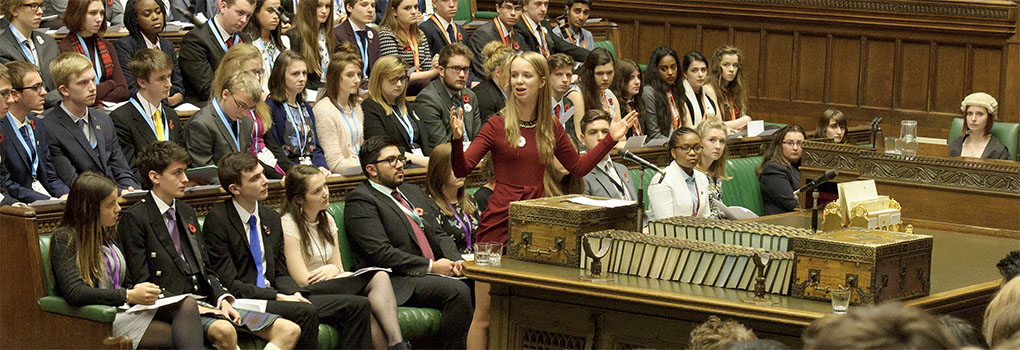Complete Guide to Debating: How to Improve your Debating Skills
August 01, 2018 - Gini Beqiri
Debating can look intimidating from the sidelines, with speakers appearing confident, passionate and unwavering, but it consists of skills that anybody can learn. Debating may not be something that you encounter in your everyday work but these skills can be incredibly valuable. In this article we provide a guide to the basics of debating.
What is debating?
A debate is a structured contest over an issue or policy. There are two sides - one supporting, one opposing.
Benefits of debating include:
- Allowing you to think about aspects and perspectives you may not have considered.
- Encourages you to speak strategically.
- Improving public speaking skills.
- Learning how to create a persuasive argument.
- When you have to argue against your personal view you realise that there are two sides to the argument.
Debating examples
The U.K. Prime Minister, Theresa May, answers questions:
This example video shows Theresa May answering questions from MPs in the House of Commons. Notice her strong debating skills and how she answers difficult questions under pressure.
Watch the full video here: Prime Minister’s Questions: 16 May 2018
Debate structure
There are multiple formats a debate can follow, this is a basic debate structure:
- A topic is chosen for each debate - this is called a resolution or motion. It can be a statement, policy or idea. The motion is usually a policy which changes the current state of affairs or a statement which is either truth or false. The motion typically starts with "This House..."
-
There are two teams of three speakers:
- The Affirmative team support the statement
- The Negative team oppose the statement
- Sometimes you will be asked to take a position in the debate but in other debates you will be allocated your position.
- Teams are provided with time to prepare - usually one hour
- Each speaker presents for a set amount of time
- Speakers alternate between the teams, usually a speaker in the Affirmative team starts, followed by a Negative speaker, then the second Affirmative speaker presents, followed by the second Negative speaker etc.
- The debate is then judged.
- There may be an audience present but they are not involved in the debate
Once you have learned how to debate in one format you can easily switch to another.
Roles of the speakers
Each speaker must typically do the following:
First Affirmative
- Contextualise the debate - clearly set out your team's interpretation of the topic and the significant issues they disagree with.
- Provide definitions if necessary.
- Outline the team line and the team split - this is where you outline your team's case and summarise the way your arguments have been divided between your speakers.
- Provide 2-3 arguments supporting the motion.
First Negative
-
Re-contextualise the debate and resolve any definitional issues - if you have disagreements with the definition given by the Affirmative these must be handled immediately. If you want to challenge the definition then you must prove that you have the most appropriate definition. There are three main steps in a definitional challenge:
- Clearly state your definition
- Provide your arguments as to why this is the superior definition
- Rebut the Affirmative's arguments supporting their definition
- Outline a team line and team split.
- Rebut the arguments made by the First Affirmative.
- Deliver 2-3 arguments against the motion.
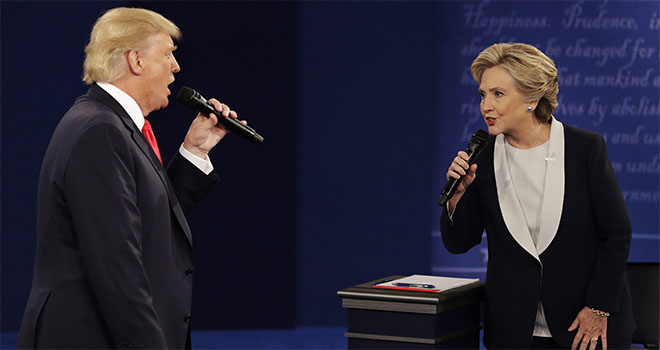
Debating is an important skill in many aspects of life, from winning political seats, to negotiating new contracts, to personal development.
Second Affirmative
- If needed, resolve any definitional issues.
- Rebut the First Negative's arguments.
- Deliver 2-3 arguments supporting the motion.
Second Negative
- If needed, resolve any definitional issues.
- Rebut the arguments made by the Affirmative team up to this point, with a focus on the Second Affirmative's arguments.
- Deliver 2-3 arguments against the motion.
Third Affirmative
- Rebut specific issues raised by Second Negative and defend any other important attacks on your team's case.
- Conclude your speech with a brief summary (1-2 minutes) of your team's case. You should include the key issues which you and the Negative team disagreed on during this.
- You can introduce new material but this is interpreted as poor team planning.
Third Negative
- This is the same structure as the Third Affirmative.
There are many variations of the three against three debate, a commonly known one is Points of Information. This is used a lot in university debates. During a speech the opposition is allowed to ask a question or make a point.
They stand up and say "point of information" or "on that point" etc. The speaker can choose to accept or reject the point. If accepted, the point of information can last around 15 seconds and the speaker can ask for it to stop at any time.
Debate definitions
Younger debaters tend to waste time defining terms so you must first decide whether you need to define a term. Ask yourself: will my speech be confusing if I don't define this term? Could the opposition misinterpret what I mean without a definition? For example, the motion could be "we should ban plastic straws". It's clear what "plastic straws" are but what does "ban" mean?
Two factors which determine the definition of the debate:
1. Context - what is happening in the area that relates to this issue? For example, maybe the government of a country is debating banning smoking in public buildings and you decide to define the term "passive smoking" during the debate. If a significant event related to the topic has occurred then it should be the focus of the debate, for instance, a shocking report may have recently been revealed in the media showing the widespread effects of second-hand smoking.
2. Spirit of the motion - topics are chosen for a reason so what sort of debate was imagined when the topic was chosen? Looking at the spirit of the motion will ensure that you pick a definition that will produce a well-balanced and important debate.
If the topic is vague then you will have more choice of definitions. You have a duty to pick a clear definition and one that will create a good debate. If not, this may cause a definitional challenge which will ruin the debate and frustrate the judges.
For example, the topic may be "we spend too much money on the stars". Stars can refer to celebrities or astronomy so you need to choose a definition.
- Look at the context and see if there has been a recent significant event related to either topics - the media is the best place to look.
- Then apply second test - which definition will lead to the best debate, which will be more interesting and debatable?
If one answer passes both tests then that's your definition. If they tie then either is a good definition.
When providing your definition explain the context used to form the definition. This is important because your understanding of the context may be different from others due to various factors, such as, religion, culture, gender etc.
Learn more about using AI to practice your debating skills.
Basic argument structure
There are various ways of dividing up cases according to groups of arguments, such as, social/economic/political etc. You could assign each speaker to handle a group.
Place the most important arguments first, for example, "The media has more influence on self-esteem than anybody else. This is true for three reasons. Firstly (most important argument)… Secondly…, Thirdly (least important argument)..."
To structure an argument follow these steps:
- Claim - present your argument in a clear statement. This claim is one reason why you're in favour of/against the motion.
- Evidence - the evidence supporting your claim, such as, statistics, references, quotes, analogies etc.
- Impact - explain the significance of the evidence - how does this support your claim?
Rebuttal
Arguments are weakest at the evidence stage as it's easy to argue against, for example, the evidence may consist of isolated examples or there may be counter evidence. But it's not a good technique because the opposition can provide more evidence or rebut your criticisms.
It's difficult to rebut claims because they are usually reasonable but if you can attack a claim then that speaker's whole argument falls apart. So if you think a claim is vulnerable then rebut it but you will need a strong explanation to show why it doesn't matter.
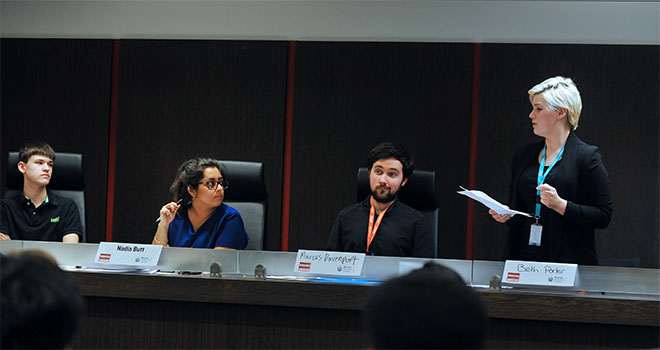
European human rights debating for sixth form students from across London.
There are common flaws you can look for to form a rebuttal:
1. False dichotomy - this is where the speaker is trying to falsely divide the debate into two sides even though there are more alternatives than they state. It's likely the speaker is doing this on purpose but in some cases they do not understand the debate.
2. Assertion - this is when a speaker presents a statement which isn't actually an argument because there is no reason to believe that the statement is valid. It may just be an assumption. You can point out that there has not been enough examination to prove this validity and then give a reason why the assertion is (probably) not valid.
3. Morally flawed - arguments can be morally flawed, for example, "All criminals given a prison sentence should be given the death penalty instead, this will save the country money and space." What has been argued is true but it's clearly morally flawed.
4. Correlation rather than causation - a speaker may suggest a link between two events and suggest one led to the other. But the speaker may not explain how one caused the other event which can make an argument invalid.
5. Failure to deliver promises - sometimes a speaker might fail to complete a task they promised to deliver. For instance, they may state that they will provide evidence supporting a certain claim but they may lose track of what they have said and not actually do this.
6. Straw man - the opposing team introduces an argument and then rebuts it. They may use an extreme example of your proposal or perhaps they were hoping that you would make this argument.
7. Contradiction - an argument the other team presents may contradict one of their previous arguments. You must point out that the arguments cannot be true simultaneously and then explain how this reduces their case's credibility.
8. Compare the conclusion to reality - think "what would happen if what they (the other team) are suggesting is implemented right now?" This usually shows that it's more complicated than they have suggested and the changes can cause secondary problems.
Scoring
Judges generally score the speakers looking at this criteria:
- Content / Matter - What the debaters say, their arguments and evidence, the relevance of their arguments.
- Style / Manner - How the debaters speak, including the language and tone used.
- Strategy / Method - The structure of the speech, the clarity and responding to other's arguments.
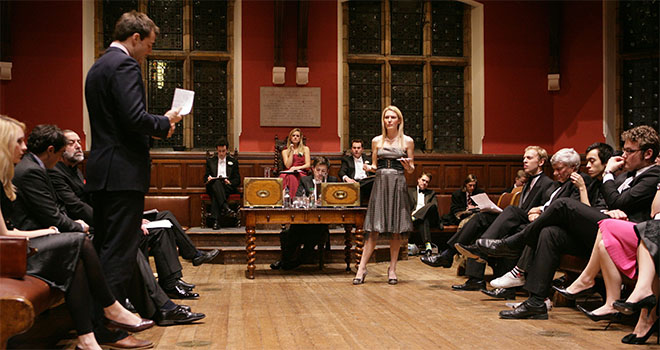
Debating event at the Oxford Union
Important skills for debating
To meet the judges criteria you will have to develop certain skills, consider the following:
- You points must be relevant to the topic.
- Provide evidence whenever you can and not your personal opinion.
- You must put aside your personal views and remain objective when you debate so your argument remains logical. You can be passionate about a topic but interest can turn into aggression and passion can turn into upset.
- Consider the audience's attention span - make it interesting, for example, don't just present lots of complicated statistics.
-
Use rhetoric to persuade - consider using the three pillars of rhetoric:
- Ethos - the ethical appeal
- Pathos - the emotional appeal
- Logos - the logical appeal
- Use notes but keep them brief and well organised. Use a different piece of paper for rebuttals.
- Similar to looking at conclusions to create rebuttals, think comparatively by asking yourself "How does my plan compare to what's happening now/what would happen in the world if the other team won?" You can win the debate if you can make comparative claims about why your arguments matter more than the other team.
- Only tell jokes if you're naturally good at it otherwise this can backfire.
- Flexibility is important because you might get allocated the side of the argument you don't agree with. You'll have to work hard to overcome your views. Also use this insight to think of the potential arguments you might make and then plan for counter arguments.
Voice
- Speak clearly and concisely.
- You must talk fast enough to have the time to deliver your speech but slow enough so you can be understood.
- Project your voice to the back of the room.
- Incorporate dramatic pauses.
- Emphasise important words and vary your tone appropriately.
Confidence
- Have a relaxed pose and posture.
- Avoid filler words.
- Know your material.
- Emphasise using gestures and avoid nervous gestures.
- Maintain eye contact with the audience.
Language
- Keep your language simple to avoid confusion.
- Refer to the opposite side as: "My opponent".
- When making a rebuttal say: "My opponent said..., however..."
- Don't exaggerate - avoid the words "never" or "always" etc.
- Avoid saying that a speaker "is wrong", instead say that "your idea is mistaken".
What to avoid
- Falsifying, making up or altering evidence.
- Publicly disagreeing with the judges' decision.
- Attacking a speaker rather than an idea.
- Acting aggressively or offensively towards debaters, judges, audience etc.
- Interrupting other debaters as this can suggest that your argument isn't very strong.
- Disagreeing with facts or obvious truths.
British Parliamentary debating
British Parliamentary debating is a popular form of debating so we will briefly explain it: There are four teams made up of two speakers each. Two teams are on the government's side and the other two teams are the opposition but all the teams are trying to win rather than one side. The motion is given 15 minutes before the debate begins and teams are assigned to positions randomly. They alternate their speeches, with the government's side starting. Speeches are usually 5-7 minutes.
The first two speakers on the government side are called the "opening government" and the first two speakers on the opposition's side are called the "opening opposition". The last two speakers on the government's and opposition's side are called the "closing government" and "closing opposition" correspondingly.
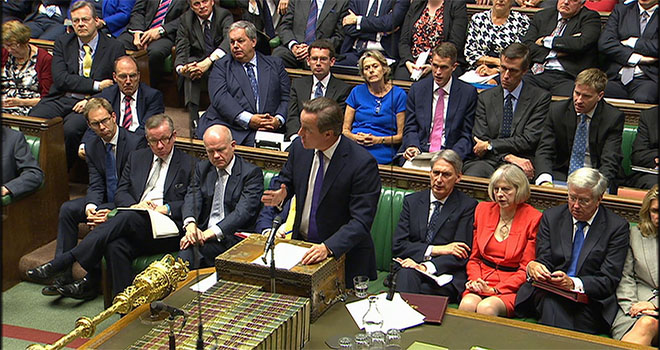
The speakers' roles in the opening half of the debate are similar to the roles of the first and second speakers in the three against three debate described previously. The only difference is that the second opening government and second opening opposition speakers include summaries at the end of their speeches - this is because they will also be competing with the teams in the closing half of the debate.
The closing government and closing opposition aim to move the debate on but not contradict their side's opening team. As well as rebuttal, the majority of the third speaker's time consists of presenting either: new material, new arguments, a new analysis from a different perspective or extending previously presented arguments. This is called an "extension" which must be something that sets their team apart and makes them unique.
The last two speeches of the closing teams are summary speeches - they summarise the debate and disagreements between the team. Their most important goal is to explain why their side has won the debate. They are not allowed to present new arguments but they can present new evidence and rebuttal.
During the speeches points of information are offered regularly. Speakers should only accept a maximum of two points of information. The first and last minute is protected time where points of information cannot be offered.
Rather than a side trying to win, all the teams are trying to win - this allows different perspectives to be explored. The teams are then ranked 1st to 4th in the debate.
Debate topics
Almost anything can be debated, here are some popular topics - these have been written as questions but they can be easily adapted into statements:
- Is animal experimentation justified?
- Should we legalise the possession of cannabis for medicinal use?
- Should we recognise Bitcoin as a legal currency?
- Is torture acceptable when used for national security?
- Should mobile phones be banned until a certain age?
- Does technology make us more lonely?
- Should guns be banned in the U.S.?
- Should we make internet companies liable for illegal content shared on their platforms?
- Will posting students’ grades publicly motivate them to perform better?
- Should animals be used for scientific testing?
- Do violent video games make people more violent?
- Should the death penalty be stopped completely?
- Should smoking in public places be completely banned?
- Should doping be allowed in professional sports?
- Should all zoos be closed?
- Should consumers must take responsibility for the plastic waste crisis?
- Is euthanasia justified?
- Is the boarding school system beneficial to children?
Debate topics for children
If you're trying to think of debate topics for a classroom, consider the following:
- Should mobile phones be allowed at school?
- Is global warming a problem?
- Should violent video games be banned?
- Is school detention beneficial?
- Are celebrities good role models?
- Does social networking have a beneficial effect on society?
- Are single sex schools more effective than co-ed schools?
- Do celebrities get away with more crime than non-celebrities?
- Is cloning animals ethical?
- Are humans to blame for certain animal extinctions?
Debating societies
If you're interested in debating consider searching for a society or debating events near you:
- Most universities have a debating society and their webpages usually contain lots of useful information and tips.
- Toastmasters
- Use Meetup to find debates close to you
